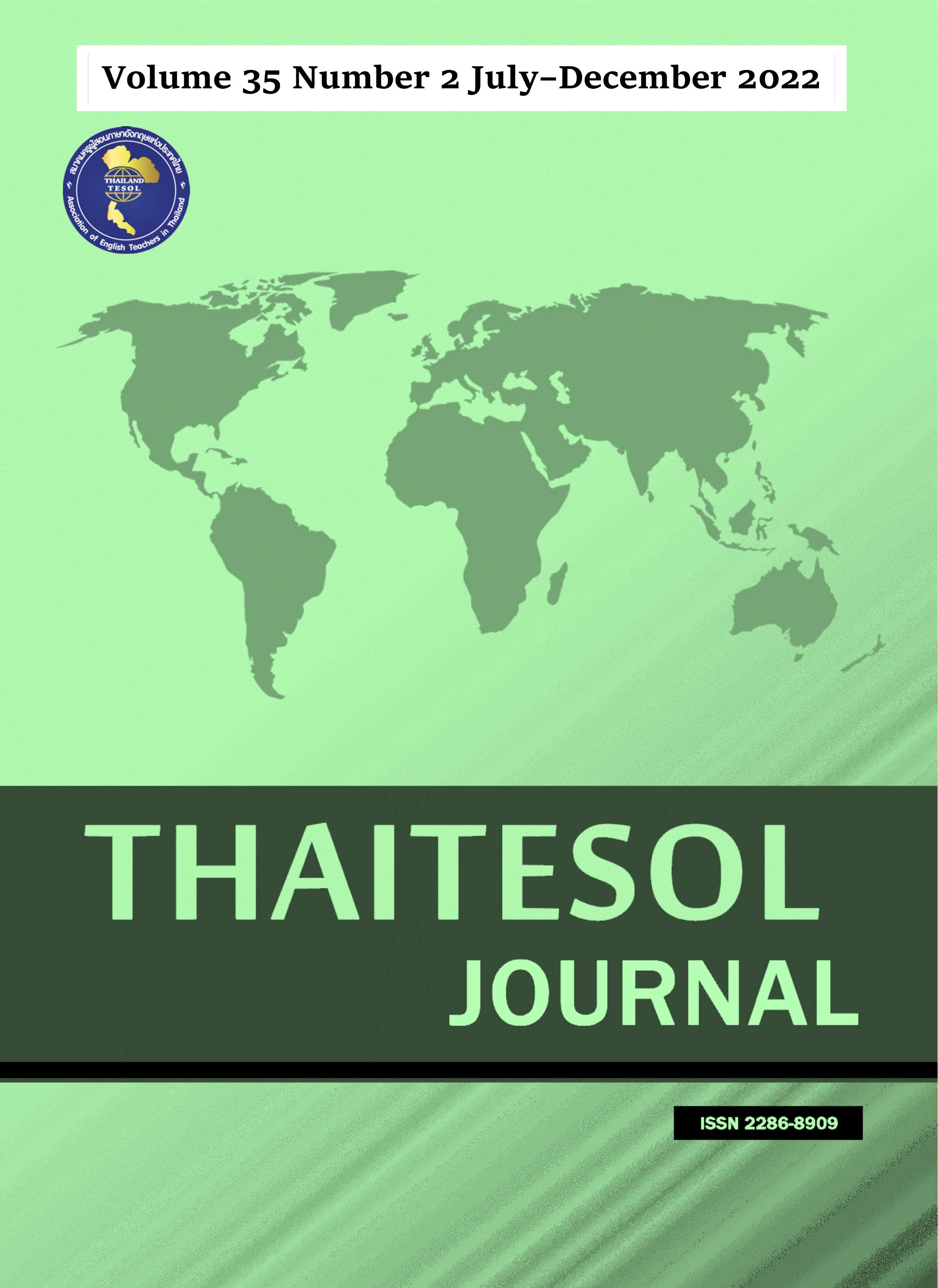“They Serve as Good Models,” but “Their Works Are too Expensive”: US Hegemony in Citation Practices in EFL Writing Textbooks in Thailand
Main Article Content
Abstract
Citation is an important element in academic writing. Although emphasis has been primarily placed on the linguistic features of citation with pedagogical aims, this study investigates citation practices from a decolonial perspective by examining the concept of the gesture of exclusion (Connell, 2007) or the tendency to cite scholarship produced by Western-based writers. Focusing on a non-Anglophone and non-colonized country, we examined the extent to which Thai textbook authors practice the gesture of exclusion by analyzing the references in their publications. Data were collected from six locally produced English as a foreign language university-level writing textbooks and one author interview. Findings showed that in a non-colonized country, the dominance of works by US-based scholars was clearly discernible, but works by Thai academics seemed to be finding footing as well. Author’s decisions to refer to either Anglophone or local scholarship were shaped by three factors: native-speakerism, capitalism, and rhetorical appeals. Paradoxically, the tension between the two competing western discourses, native-speakerism and capitalism, contributed significantly to a higher visibility of works by local scholars. It is suggested that as this tension mounts, it could help promote a more inclusive academic discipline, in terms of academic citations. Implications for writing teachers and material writers are also discussed.
Article Details

This work is licensed under a Creative Commons Attribution-NoDerivatives 4.0 International License.
Materials in THAITESOL JOURNAL may be photocopied for educational purposes. Under no circumstances may any part of this journal be photocopied for commercial purposes.


